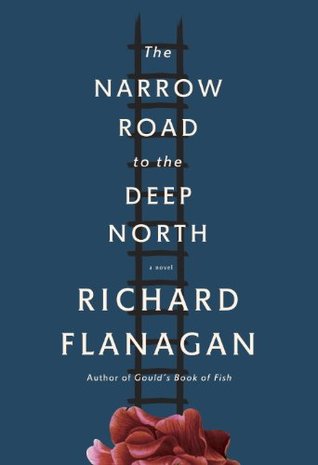More on this book
Community
Kindle Notes & Highlights
In one way it was phenomenally dull, in another fascinating. He had never met people with such certainty before. Jews and Catholics were less, Irish ugly, Chinese and Aborigines not even human. They did not think such things. They knew them. Odd things amazed him. Their houses made of stone. The weight of their cutlery. Their ignorance of the lives of others. Their blindness to the beauty of the natural world.
The Japanese Empire has belief that it will win—the indomitable Japanese spirit, that spirit that the West does not have, that spirit it calls and understands as the Emperor’s will; it is this spirit that it believes will prevail until its final victory.
Hundreds of thousands of slaves, Asian and European. And among their number are twenty-two thousand Australian POWs, most surrendered at the fall of Singapore as a strategic necessity before the fighting has even properly begun.
But then there is not even an agreed numbering of all those who died on the Death Railway. The Allied POWs were but a fraction—some 60,000 men—of those who slaved on that Pharaonic project. Alongside them were a quarter of a million Tamils, Chinese, Javanese, Malayans, Thais and Burmese. Or more. Some historians say 50,000 of these slave labourers died, some say 100,000, some say 200,000. No one knows.
Alfred Nobile liked this
They had smoked to keep the dead out of their nostrils, they had joked to keep the dead from preying on their minds, they had eaten to remind themselves they were alive, and Darky Gardiner had run a book on whether he himself might get killed, believing his chances were improving all the time.
The mortars the French had used in their attack had transformed the Australian defenders into things not human, drying dark-red meat and fly-blown viscera, streaked, smashed bone and the faces clenched back on exposed teeth, those exposed, terrible teeth of death Dorrigo Evans began to see in every smile.
Dorrigo Evans hated virtue, hated virtue being admired, hated people who pretended he had virtue or pretended to virtue themselves. And the more he was accused of virtue as he grew older, the more he hated it. He did not believe in virtue. Virtue was vanity dressed up and waiting for applause.
We know no mithridatum of despair as drunks, the angry penguins of the night, straddling the cobbles of the square tying a shoelace by fogged lamplight.
I'd never heard of mithridatum. It is a semi-mythical remedy with as many as 65 ingredients, used as an antidote for poisoning, and said to have been created by Mithridates VI Eupator of Pontus in the 1st century BC. (Wikipedia)
He found several shelves full of old editions of classical writers and began vaguely browsing, hoping to find a cheap edition of Virgil’s Aeneid, which he had only ever read in a borrowed copy. It wasn’t really the great poem of antiquity that Dorrigo Evans wanted though, but the aura he felt around such books—an aura that both radiated outwards and took him inwards to another world that said to him that he was not alone.
At such times he had the sensation that there was only one book in the universe, and that all books were simply portals into this greater ongoing work—an inexhaustible, beautiful world that was not imaginary but the world as it truly was, a book without beginning or end.


